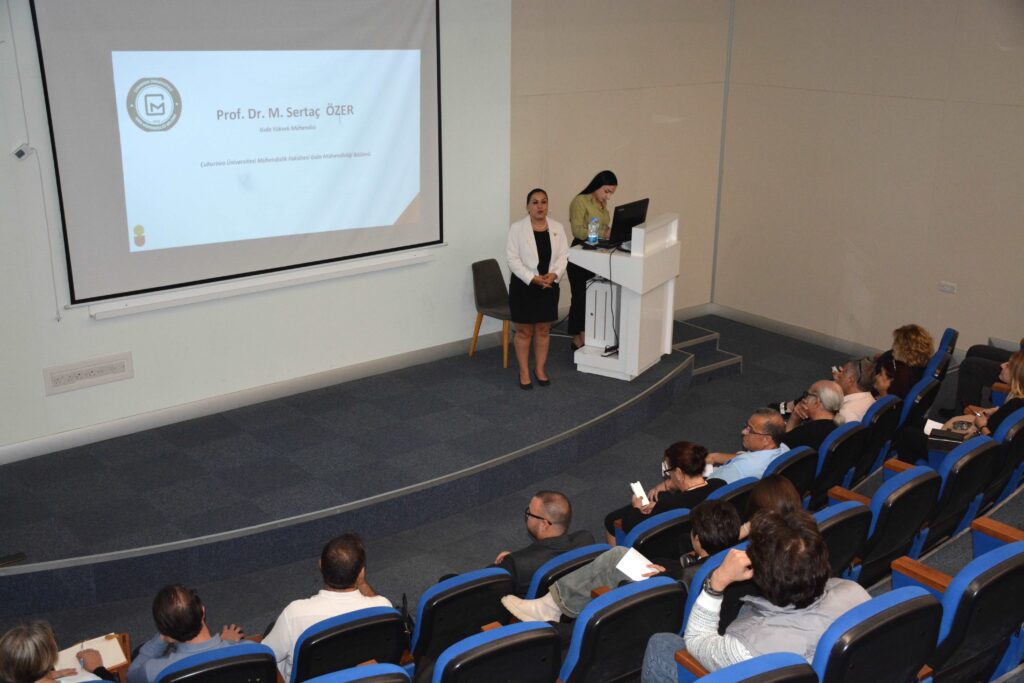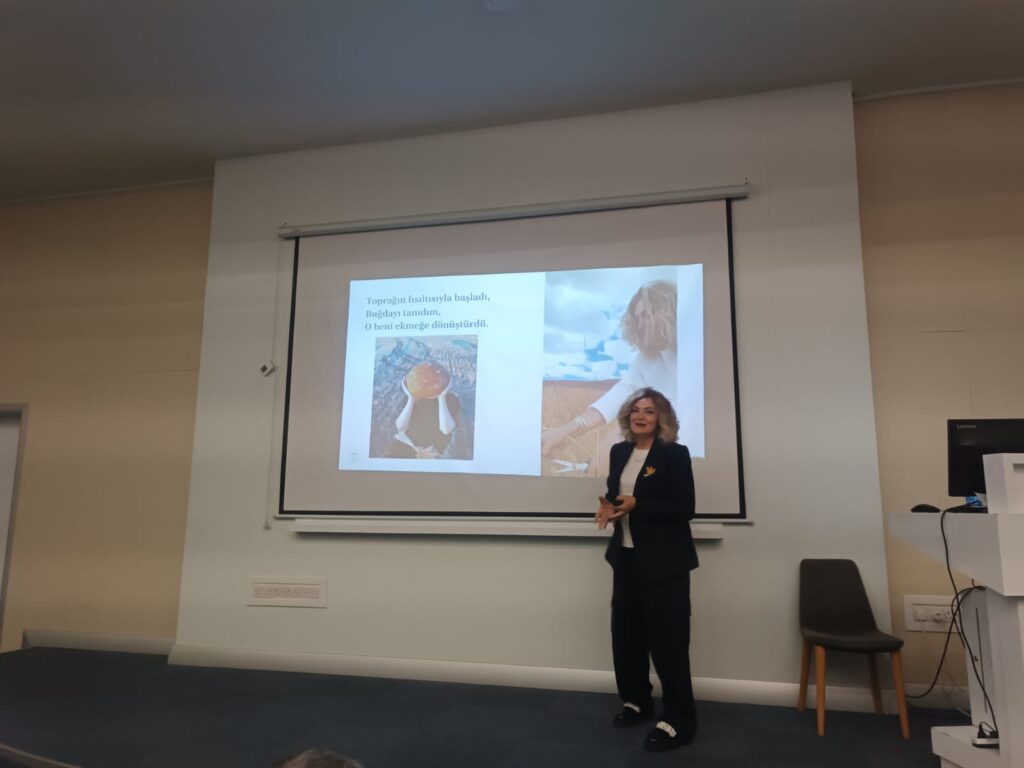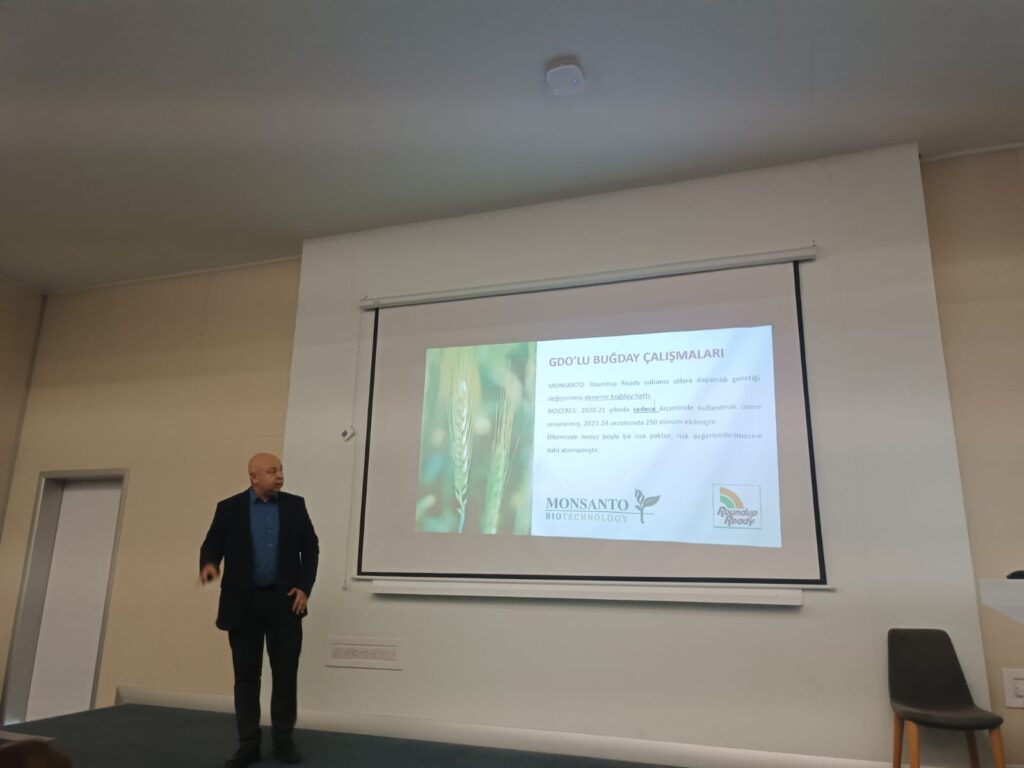The “Bread Talks” seminar, held at Near East University and bringing together experts in the field, revealed the secrets of the ancient flavor that extends from wheat to yeast.
Bread, one of the oldest foods in human history, is not only an indispensable part of our tables but has also been the center of debate in recent years. So, is bread truly our friend or a hidden enemy? The answer to this question was thoroughly explored in the “Bread Talks” seminar, organized in collaboration with the Food Engineering Department of the Faculty of Agriculture at Near East University and the İrfan Günsel Research Center.
At the seminar, Prof. Dr. M. Sertaç Özer, a faculty member at the Food Engineering Department of Çukurova University, and Nesrin Karataş, an agricultural engineer, shared a wide range of topics with the participants, from the historical journey of bread to its nutritional value, from proper consumption habits to industrial production processes.
The seminar, which drew a large number of local producers, was attended by Prof. Dr. The seminar was attended by numerous faculty members and students, including Adile Özgören, Dean of the Faculty of Civil Engineering and Environment, Prof. Dr. Hüseyin Gökçekuş, and Dean of the Faculty of Agriculture, Prof. Dr. Özge Özden. Among the participants was Dr. Sebahattin Haluk Uygur, a photographer, author, physician, and cultural figure who has shaped Adana’s artistic scene for many years. At the end of the seminar, Assoc. Prof. Dr. Şebnem Güler, Head of the Food Engineering Department at Near East University’s Faculty of Agriculture, thanked the speakers and participants and emphasized that such events contribute to the awareness of sustainable food production.
Nutritional Value Is Determined by Processing Process, Not Genetics
Çukurova University Food Engineering Department Faculty Member Prof. Dr. M. Sertaç Özer and Agricultural Engineer Nesrin Karataş presented scientific presentations on wheat and sourdough, evaluating the impact of traditional foods on modern nutrition from a multifaceted perspective. Özer addressed the genetic and nutritional differences between modern and ancient wheat varieties, emphasizing that the widespread public perception that modern wheat has decreased nutritional value and increased gluten content lacks scientific basis. Stating that modern wheat is not genetically modified (GMO), Prof. Dr. Özer said, “GMO wheat is neither planted nor commercialized in our country. Modern wheats are varieties whose productivity and resistance have been increased through classical breeding methods.” Emphasizing that the primary factor affecting wheat’s nutritional value is its processing method, rather than its genetic makeup, Prof. Dr. Özer stated that refining significantly reduces the fiber, vitamin, and mineral content of flour. Prof. Dr. Özer also noted that the belief that stone mills are always healthier is incorrect, emphasizing the advantages of modern milling technologies, saying, “What matters is not nostalgia, but the preservation of hygiene and nutritional value.” In her presentation titled “Health from Sourdough,” Agricultural Engineer Nesrin Karataş explained the microbiological structure of traditional sourdough and the positive effects of the fermentation process on digestion. Karataş stated that sourdough does not cure celiac disease, but can improve digestion for individuals sensitive to gluten. She concluded her speech by saying, “Sourdough is a bridge between the wisdom of the past and the health of the future.”
Prof. Dr. Özge Özden: “Thanks to these studies, we are preserving our cultural heritage, supporting rural development, and empowering our local producers.”
Prof. Dr. Özge Özden, Dean of the Faculty of Agriculture at Near East University, began her speech by saying, “Our event was organized both under the auspices of the İrfan Günsel Research Center and within our faculty, reflecting the shared mission of both institutions.” She continued, “Our goal is to remind us of the cultural values and traditional heritage of our Cyprus and to highlight our uniquely Cypriot products.”
“We all know that Cyprus has its own unique, delicious village breads; these breads, made with sourdough, are an indispensable part of our culture,” said Prof. Dr. Özge Özden, adding, “We are gathered here today to bring these unique values to the forefront and pass them on to future generations. Through these efforts, we are preserving our cultural heritage, supporting rural development, and empowering our local producers.”
This activity aligns with SDG 2 and SDG 17.



